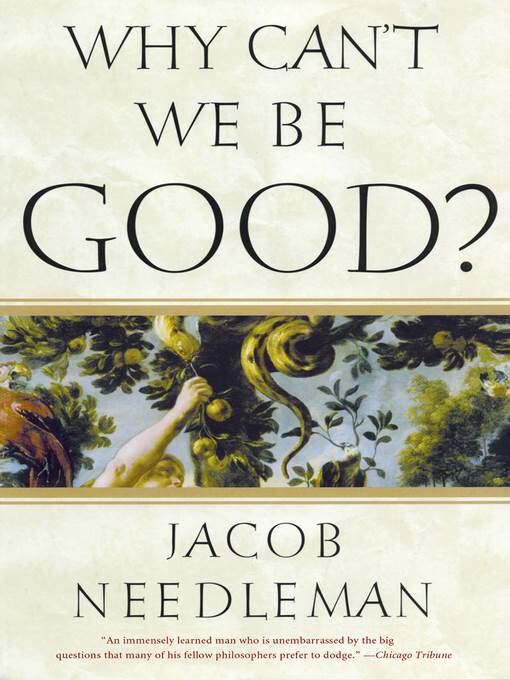
Why Can't We Be Good?
- اطلاعات
- نقد و بررسی
- دیدگاه کاربران
نقد و بررسی

December 11, 2006
Most people have a intrinsic desire to do good rather than evil, yet
\t\t all humans fail in perplexing ways to do good. Needleman's titular question has
\t\t haunted philosophers and religious thinkers since Socrates. Needleman,
\t\t professor of philosophy at San Francisco State and popular author of
\t\t Lost Christianity, offers his eloquent and
\t\t entertaining thoughts about why humans are such flops at goodness. He draws on
\t\t a wide range of philosophers, religious thinkers and psychologists—from
\t\t Socrates to Buddha to Rabbi Hillel—and discovers that our inability to be
\t\t good is simple: humans are creatures of choice, and our freedom allows us to
\t\t make bad choices as well as good ones. This freedom, however, is also "the
\t\t freedom to love and act justly toward man." Using exercises from his own
\t\t classes, Needleman suggests that the practice of attending to the
\t\t other—listening carefully, repeating what the other person has said to ensure
\t\t an accurate hearing—moves us a long way toward achieving the good. Though
\t\t Needleman's answer to this age-old question about goodness is no more
\t\t satisfying or original than any other, his lively prose, storytelling skills
\t\t and lucid insights draw us into an animated conversation with a brilliant
\t\t teacher.

February 1, 2007
Needleman (philosophy, San Francisco State Univ.) here poses an age-old question: Why do adherents of religious traditions aspire to moral ideals they cannot keep? He then repeatedly begs more questions that he does not directly answer. For instance: Who defines what is "good," or what constitutes morality? Is simply stating a version of the golden rule enough to establish morality? Why would a good God create a flawed world in which evil seems to have the upper hand and suffering predominates? Needleman looks to Plato, Socrates, Hillel, and a variety of religious traditions for an answer. His is a spiritual search for comfort in the hope that humans can be moralor at least, that one human can be moral. Beginning college courses in ethics may find his book useful; recommended for large academic libraries.James A. Overbeck, Atlanta-Fulton P.L., GA
Copyright 2007 Library Journal, LLC Used with permission.




دیدگاه کاربران